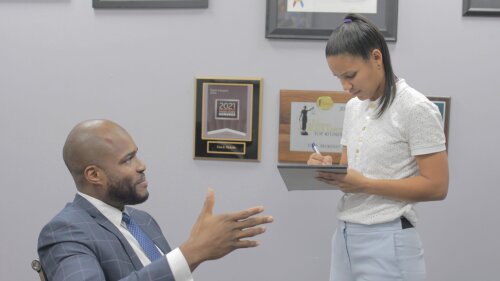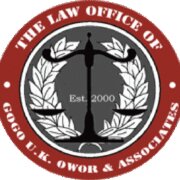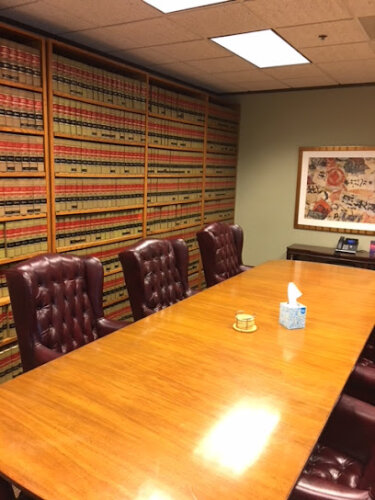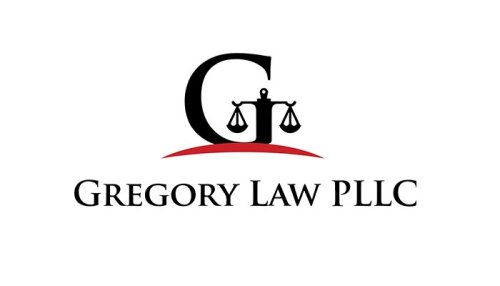Best Child Abuse Lawyers in Houston
Share your needs with us, get contacted by law firms.
Free. Takes 2 min.
Free Guide to Hiring a Family Lawyer
List of the best lawyers in Houston, United States
About Child Abuse Law in Houston, United States
Child abuse is a serious legal and social issue in Houston, United States, with strict laws designed to protect children from physical, emotional, sexual abuse, and neglect. Texas statutes define child abuse as any act or failure to act that results in harm or risk of harm to a child under the age of 18. Child Protective Services (CPS), law enforcement, and the courts are actively involved in identifying, investigating, and addressing allegations of child abuse in Houston. Legal consequences for perpetrators can be severe, including criminal charges, loss of custodial rights, and mandatory participation in counseling or treatment programs.
Why You May Need a Lawyer
Legal representation is crucial for anyone involved in a child abuse case, regardless of their role. Individuals accused of abuse face criminal charges that can lead to incarceration, hefty fines, and permanent marks on their records. Victims and their families may require legal assistance to secure protection orders, remove the child from harm's way, and gain access to necessary services. In addition, anyone involved in a custody dispute or facing CPS investigations may benefit from a lawyer's guidance to protect their rights and best interests. An experienced attorney can help navigate the complexities of the legal system, gather evidence, represent clients in court, and advocate for the child's safety and justice.
Local Laws Overview
In Houston, child abuse cases are governed by both Texas state law and local ordinances. The Texas Family Code and Texas Penal Code contain key statutes addressing definitions of abuse, reporting requirements, and the prosecution of offenders. Texas is a mandatory reporting state, meaning that anyone who suspects child abuse must report it to authorities. Failure to do so can result in criminal penalties. CPS investigates allegations, and courts may impose protective orders, remove children from homes, and terminate parental rights if abuse is substantiated. Sentencing for perpetrators varies depending on the severity of abuse and whether other aggravating factors are present.
Frequently Asked Questions
What actions are considered child abuse in Houston?
Child abuse includes physical injury, emotional harm, sexual exploitation or abuse, and neglect that endangers a child's well-being. This can also cover failing to provide adequate food, shelter, supervision, or medical care.
Who is required to report suspected child abuse in Houston?
All Texas residents have a legal duty to report suspected child abuse, regardless of their relationship to the child. Professionals such as teachers, doctors, and social workers have additional responsibilities and stricter reporting timelines.
What happens after a report of child abuse is made?
Once a report is filed, CPS may begin an investigation, which can involve interviews, home visits, medical examinations, and contacting law enforcement if criminal activity is suspected.
Can someone be falsely accused of child abuse?
Yes, false accusations can occur, especially during custody disputes or disagreements. It is important to have legal representation to address these situations and present evidence refuting allegations.
What are the penalties for committing child abuse?
Penalties range from misdemeanors to felonies depending on the type and severity of abuse. Consequences can include jail time, fines, loss of parental rights, and registration as a sex offender if applicable.
What rights do parents have during a CPS investigation?
Parents have the right to be informed of allegations, to participate in investigations, and to obtain legal counsel. They may also contest findings in court and present evidence in their defense.
Can I get custody of a child if I believe they are being abused?
If you have evidence a child is being abused, you may petition the court for custody or protective custody. Courts prioritize the child's safety above all else and may grant emergency orders to remove a child from danger.
Is child neglect treated the same as physical abuse in Houston?
Neglect is considered a form of abuse under Texas law, though the specific legal consequences may differ. Neglect can be grounds for CPS intervention and criminal charges if the child's health or safety is at risk.
How can an attorney help in a child abuse case?
An attorney can represent your interests, help you navigate CPS investigations, defend against criminal charges, assist in regaining custody, or pursue legal action against abusers. Lawyers provide crucial support and advocacy in these emotionally charged situations.
How long do child abuse proceedings take?
Case duration varies widely. Emergency protective orders can be issued quickly, but full investigations and legal proceedings can take several months or longer, depending on case complexity and court schedules.
Additional Resources
There are several organizations and governmental bodies in Houston and Texas that can assist those dealing with child abuse:
- Texas Department of Family and Protective Services (DFPS)
- Child Protective Services (CPS) Houston offices
- Houston Police Department Family Violence Unit
- Houston Area Women's Center
- The Children's Assessment Center in Houston
- Lone Star Legal Aid
- National Child Abuse Hotline
- Local shelters and counseling services for children and families
Next Steps
If you suspect child abuse or are involved in a legal matter related to child abuse in Houston, it is important to act quickly. Begin by contacting the authorities if a child is in immediate danger, and submit a report to CPS or local law enforcement. Gather any evidence or documentation you can, such as photographs, medical records, or witness statements. Seek legal advice from an attorney experienced in child abuse cases to ensure your rights and the child’s safety are protected throughout the process. Early legal intervention can be critical in preventing further harm and safeguarding the child's future well-being.
Lawzana helps you find the best lawyers and law firms in Houston through a curated and pre-screened list of qualified legal professionals. Our platform offers rankings and detailed profiles of attorneys and law firms, allowing you to compare based on practice areas, including Child Abuse, experience, and client feedback.
Each profile includes a description of the firm's areas of practice, client reviews, team members and partners, year of establishment, spoken languages, office locations, contact information, social media presence, and any published articles or resources. Most firms on our platform speak English and are experienced in both local and international legal matters.
Get a quote from top-rated law firms in Houston, United States — quickly, securely, and without unnecessary hassle.
Disclaimer:
The information provided on this page is for general informational purposes only and does not constitute legal advice. While we strive to ensure the accuracy and relevance of the content, legal information may change over time, and interpretations of the law can vary. You should always consult with a qualified legal professional for advice specific to your situation.
We disclaim all liability for actions taken or not taken based on the content of this page. If you believe any information is incorrect or outdated, please contact us, and we will review and update it where appropriate.












